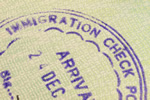China to open doors for Western healthcare insurers

China to open doors for Western healthcare insurers
That the Chinese government regards the country’s healthcare provisions as of national importance is old news, with improvements of the system a priority for several decades. However, public healthcare has been struggling to keep up with an ageing population as well as the expectations of its younger citizens, whilst the private sector is booming but only available to the comparatively wealthy.
In an attempt to regularise the system, Chinese leaders have been forced to include Western investors as well as equity, healthcare and private medical insurance providers. China’s problems on the healthcare front include a backlash from the long-term, now deleted ‘one-child’ policy which has resulted in the safety net of close family carers for the elderly being eliminated. In addition, a third of China’s huge population will be over 60 years of age within 30 years or so.
State nursing homes for older, sick parents are few and far between and only able to cater for just 2.1 per cent of the country’s elderly, compared with provision in the Western world for a much higher percentage of aged citizens. Stuck between a rock and hard place, China has been forced to encourage private provision of healthcare services from foreign firms, giving applicants a majority stake in partnerships with established local life insurance companies.
As reported in a statement from giant Western insurance company AXA, Western-style private health insurance expansion into China is a done deal and is also likely to create a good number of expat opportunities in the sector. However, it’s due to become a complicated procedure for overseas insurers as each province has its own take on the provision of social security and the industry in general is beset by restrictions on foreign involvement.
For expats already working in China, accessing top-quality healthcare outside Beijing and Shanghai is a lottery even with a reputable private healthcare policy, with medivac to Hong Kong often the only option. Whatever the outcome, meeting immediate needs will no doubt improve the situation, if only because whatever China wants, China eventually gets.
Related Stories:
- China hits its expats with 45 per cent tax on overseas earnings - July 15, 2020
- Tips for newly-arrived expats on dealing with Japan’s healthcare system - July 9, 2020
- Western expats in Cambodia watch in horror as China moves in - July 6, 2020
- Expats lose whilst health insurers win due to Brexit - June 30, 2020
- Hints for expats looking to work longterm in China - June 28, 2020
- Expat arrivals in Germany confused over dual healthcare insurance - June 3, 2020
- Hong Kong expats fearing new China rulings - May 28, 2020
- Elderly Western expats in Thailand have problems with government gizmo - May 22, 2020
- Quarantined expats in China forced to accept surveillance cameras - April 30, 2020
- Expats in Vietnam happy about economic reopening - April 29, 2020
Latest News:
- Tips on a trouble-free relocation as an expat overseas - July 20, 2020
- Expats find peace in the covid-19 refuge of Dahab town - July 20, 2020
- Is Kuwaitization the unintended result of the oil price crash? - July 20, 2020
- Expats unhappy abut changes to Korean points-based visa system - July 17, 2020
- Chiang Mai and Bangkok no longer bargain locations for expats - July 17, 2020
- Expats in Malaysia still banned from overseas travel - July 17, 2020
- Vietnam welcomes expats to its safe, affordable lifestyle - July 16, 2020
- Asian tiger economies reach out to expats in Hong Kong - July 16, 2020
- HSBC Asia to cut back on internal expat relocations - July 16, 2020
- Tips on integrating for newly-arrived expats - July 15, 2020


